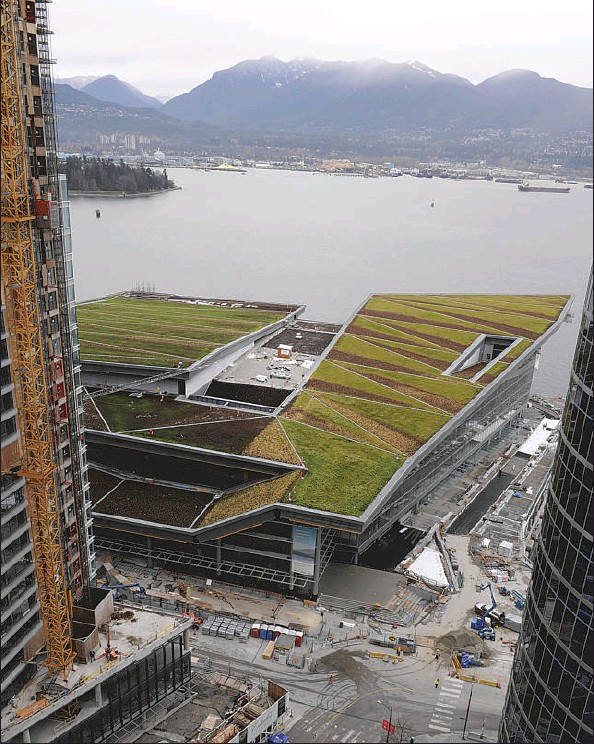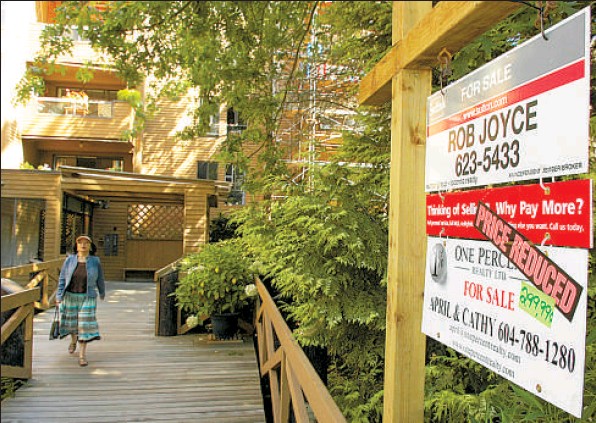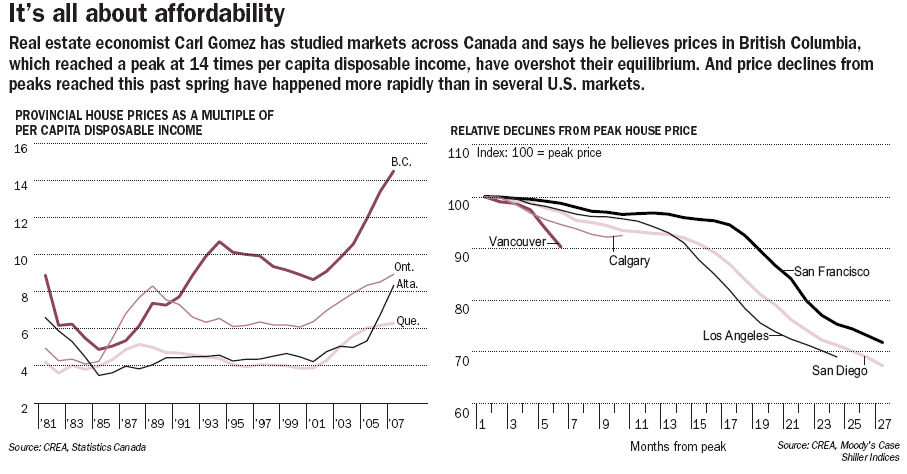Project attracted controversy as costs shot from $ 495 million to about $ 883 million
LORI CULBERT
Sun

The Vancouver convention centre expansion’s green roof overlooks Coal Harbour. GLENN BAGLO/ VANCOUVER SUN
Those who are building it gush about the Austrian glass and the B. C. artwork, but has the expansion of the Vancouver Convention & Exhibition Centre been a good investment, given today’s economic uncertainty?
And has the ballooning budget — which was harshly criticized in an auditorgeneral’s report last year — for the newer, bigger, fancier wing of the convention centre really stopped growing?
The answer is yes to both questions, according to fans of the imposing structure that juts out over Burrard Inlet.
But others raise concerns about budgetconscious companies booking fewer conventions in the future, potentially causing more money woes for the expensive jewel in Vancouver’s economic crown.
The centre’s original budget of $ 495 million spiralled out of control to $ 883.2 million, but that final price-tag was locked in last year and will not budge, Tourism Minister Bill Bennett promised in an interview last week.
“ The project will come in on or under budget,” Bennett said.
Despite the horrendous cost overruns, Bennett argued the centre is a world-class facility that will “ more than pay for itself” despite the competitive environment for convention business during tough fiscal times.
“ I’m not a Pollyanna. I’m not suggesting to you that we’re going to be immune somehow from the economic downturn. But we’ll be in a better position to compete here,” he said.
“ Yeah, it is going to be tougher, and yeah, the conferences are probably going to be somewhat scaled back, but business doesn’t end because there is a recession.”
So far, 159 conventions are booked for the new facility after it opens next spring. But the number of people expected to attend will be lower because of corporate belt-tightening, Bennett said. However, he still maintained the events will generate $ 2 billion in economic activity.
Those 159 bookings stretch as far into the future as 2018, and 54 of them would not have fit in the existing “ boutique”sized convention centre.
Today, PavCo, the Crown corporation that runs the convention centre, will tour reporters through the facility to mark 100 days before the construction is expected to be finished in mid-March. The government insists the facility will be ready for its first convention, to start April 16 when the American Bar Association comes to town.
But Maureen Bader, of the Canadian Taxpayers Federation, is among those who are worried the costs of building the convention centre have not stopped growing, and that the government will ultimately step in to pay for the overrun because this is a high-priority Olympics-related project.
“ Only 80 per cent of the $ 883 million has been fixed, and we haven’t seen any indication at all that the government is willing to reduce the scope of the project,” she said. “ I’m sort of waiting for it to hit the magic $ 1-billion mark, but I bet you it won’t do that until after the next election.”
Bader also noted the federal Liberal party nearly cancelled its 2009 convention in Vancouver because of concerns about cost, and she believes others must be weighing the same option.
None of the 159 events booked into the new facility have so far been cancelled, said Dave Gazley of Tourism Vancouver. But he noted it is standard in tough economic times to court those clients to ensure they will still come to Vancouver.
“ With what is going on globally, for sure, we need to keep an eye on every single group that we already have on the books so attendance numbers don’t slip because of economic reasons,” he said. “ We’ve done this in the past after 9/ 11, after SARS.”
Associations such as legal and medical groups book their conventions far in advance and are more stable clients, Gazley said. But corporations are more influenced by tough times and there could be uncertainty with some of those bookings.
Among the high-end details in this convention centre is the $ 25 million in glass, which lines the exterior walls. There are about 2,500 glass panels, twobyfour metres in size, which cost about $ 10,000 each to manufacture, transport and install.
The glass was imported from Austria, which was a “ fairly unusual” step, said Regan Loehr of Inland Glass, the Kamloops company in charge of the windows in the convention centre. It was necessary, he said, because largeenough pieces of this special low-iron glass were not available in North America at the time construction began.
“ The low-iron content in the glass gives it a lot clearer views. So if you look at it standing inside the building, or even outside the building, it’s like the wall basically disappears, is the theory behind the design by the consultants,” Loehr.
The job was expensive and complex because many panels were installed in walls suspended over the water.
“ It is very much one of the highestend buildings we’ve worked on, and on cost per square footage, it’s right near the top,” he said.
In a televised address in October, Premier Gordon Campbell vowed to “ rein in avoidable government spending” during what he called the worst global financial crisis in 75 years.
But big-ticket finishings and special artwork have not been scaled back as the convention centre nears completion, Campbell’s tourism minister said. Building a high-quality convention centre, Bennett argued, will be an economic stimulus for Vancouver during tough times.
“ We’re being told by people around the world that this is going to be the most attractive convention centre in the world,” he said. “ We have to make sure that our finishes are up to that standard. So, no, we’re not planning right now on cutting back.”
In April 2007, the government appointed developer David Podmore to oversee the financially-out-of-control project, and he became the first person on the PavCo board with in-depth constructionsector knowledge. Podmore then negotiated with the centre’s main contractor to set a fixed price for 80 per cent of the budget, replacing the previous cost-plus contract.
But in a scathing October 2007 report, auditor-general Errol Price couldn’t provide assurances the centre would be on budget because its “ estimates of future costs are built on assumptions” that there will be no further changes before completion.
Price noted some of the reasons for the ballooning price tag included more public amenities, rising construction costs, and starting the building before a design was complete because of the tight time-frame to finish before the 2010 Olympics.
Those construction costs are no longer escalating, but NDP critic Rob Fleming argued that alone is not a guarantee the Liberals will keep this project in the black and economically viable.
“ How can a building that is double its original budget — but it’s the same building you planned for — earn twice the amount of revenues to service that enormous debt? How many events can you cram in there?” asked Fleming, the NDP’s tourism critic.
Fleming was also skeptical of the $ 2 billion in economic activity that the 159 conventions are predicted to create.
“ They are using wildly optimistic estimates for the number of packs of gum and restaurant meals people will be buying.”
He also questioned the need for such a large facility, noting that 105 of those future conventions could still have come to Vancouver without the new building because they would have fit in the existing centre.
But Gazley maintained the centre will be a good investment, despite the inflated cost. “ If you look at that building amortized over 25, 30, 40 years, it is going to bring an awful lot of money into the community,” he said.
Of the total $ 883-million bill, the province’s share is roughly $ 538 million. The federal government has agreed to pay $ 225.5 million, Tourism Vancouver $ 90 million, and PavCo $ 30 million.








